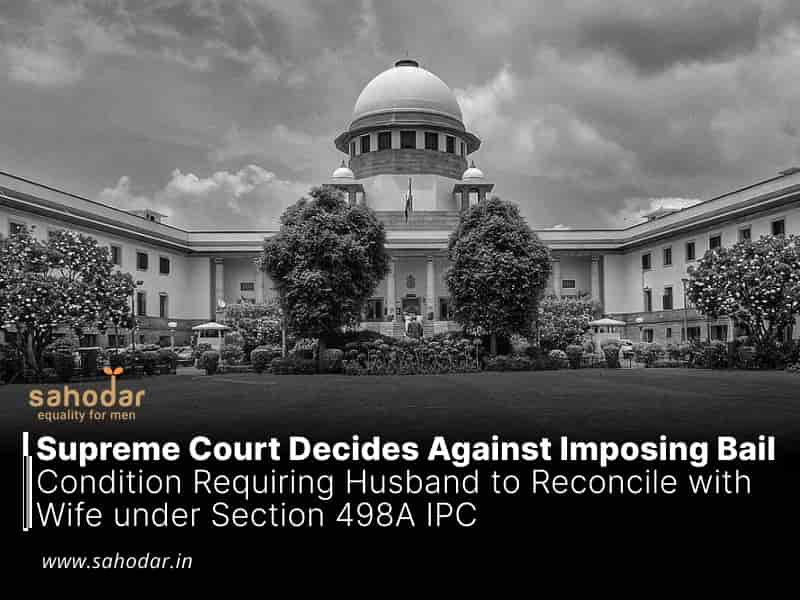The Supreme Court, in a recent pronouncement, held that the imposition of a condition mandating the accused husband, seeking anticipatory bail under Section 498A of the IPC, to bring his wife to his residence and ensure her maintenance and dignity is impermissible. A Division Bench, comprising Justices Bela M. Trivedi and Satish Chandra Sharma, adjudicated upon the matter.
In the pertinent case, the appellant, the accused husband, had petitioned for anticipatory bail before the High Court of Jharkhand, Ranchi Bench. While the High Court granted bail, it attached a distinctive condition. This condition mandated the husband to cohabit with his wife at his residence, undertaking responsibility for her sustenance while upholding her dignity and honor. For precision, the condition is expressed as follows:
“Accordingly, the petitioner is directed to surrender in the Court within six weeks from today and in the event of his arrest or surrendering, he will be enlarged on bail on satisfying the trial court that the petitioner has taken the opposite party no.2 to his house at Bandra locality of Ranchi and keeping and maintaining her with full dignity and honor as his lawful wife.”
Subsequent to this development, the husband sought redress from the High Court, seeking a revision of the aforementioned order. In the petition filed for the modification of the order, the husband argued that he had secured a residence and was prepared to fulfill his responsibilities towards his wife. Conversely, the wife asserted her readiness to reconcile and resume marital life on the condition that her husband joined her in their shared residence. Despite these submissions, the High Court rejected the husband’s plea, noting that the appellant remained steadfast in his decision not to resume cohabitation with his wife at their shared residence.
“In view of the adamant attitude of the appellant in not resuming the conjugal life with the opposite party No.2 in the house of the appellant, where the opposite party No.2 was staying, his petition could not be considered.,” the High Court held.
Against this contextual backdrop, the issue was elevated to the Supreme Court. The Court unequivocally asserted that the imposition of such a condition is impermissible when granting anticipatory bail. Furthermore, this condition should not serve as grounds for dismissing the appellant’s petition.
“In our opinion, neither such condition should have been imposed by the High Court while granting an anticipatory bail, nor such could be a ground for rejection of the petition filed by the appellant.”
In view of this, while setting aside the impugned order, the Court granted bail to the accused.

